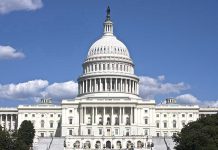
One moment a rising Democratic star is set to graduate from the U.S. Naval Academy and take on the New Jersey governor’s mansion—the next, she’s barred from the stage, her integrity on trial before the public and the Academy brass alike.
Story Snapshot
- A Democratic frontrunner in New Jersey’s 2025 governor’s race was blocked from her Naval Academy graduation amid an active cheating investigation.
- The scandal erupted just as the primary season peaked, entangling military honor codes with high-stakes state politics.
- Party leaders and voters now weigh the cost of allegations—unproven, but damaging—on candidate viability and public trust.
- The ongoing probe and its fallout threaten to reshape the gubernatorial race and spark calls for reforms in both military and political vetting.
Naval Academy Cheating Scandal Snares a Political Front-Runner
Naval Academy graduation ceremonies are usually celebrations of discipline, achievement, and patriotic pride. This year, the spotlight shifted from pomp to scandal as one graduate—a Democratic gubernatorial candidate—was barred from walking the stage. The reason: an unresolved cheating probe that surfaced in spring 2025, implicating several midshipmen, including the candidate. The event’s collision with New Jersey’s heated primary season transformed academy discipline into a political firestorm, with the candidate’s future—and party fortunes—hanging in the balance.
Unlike previous scandals, this one’s timing could not be worse for the Democratic Party. The candidate’s barring was announced in early June, days before the critical June 10 primary. With media outlets digging into the Academy’s process and party leaders issuing carefully worded statements, the story rocketed from Annapolis headlines to New Jersey living rooms. The Naval Academy’s honor code, steeped in tradition, was now at odds with a modern campaign’s war for perception. The candidate, denying wrongdoing, vowed to cooperate with investigators, but the optics of exclusion have already cast a shadow over her campaign.
Political Fallout and Party Calculations
New Jersey’s 2025 gubernatorial race was shaping up as a contest of historic intensity, with the Democratic field led by a candidate who embodied both military and civic credentials. Her sudden sidelining forced party strategists to confront two uncomfortable truths: that accusations—even unproven—can torpedo momentum, and that military service, once a political asset, can become a liability in the age of instant scandal. With the Republican opposition demanding transparency and the Democratic establishment preaching due process, the party’s calculus is shifting. The risk: a charismatic nominee hobbled by association with academic dishonor, in a race where trust is currency.
Voters, meanwhile, are left to navigate the uncertainty. Will they view the investigation as a political hit job or a legitimate red flag? In a state known for bruising politics and skeptical electorates, the answer could determine the governor’s mansion. The candidate’s campaign, while still active, faces relentless scrutiny, and the Democratic leadership must weigh loyalty against electability.
The Intersection of Military Ethics and Political Ambition
Military academies have long held themselves as bastions of integrity, with honor codes that brook no compromise. Yet, cheating scandals are not new to Annapolis or its sister academies; previous incidents have resulted in expulsions, delayed graduations, and high-profile reforms. The difference in 2025 is the proximity to an election and the candidate’s prominence. For the Academy, the stakes are institutional: the credibility of its disciplinary process and the public’s trust in its graduates. For the candidate, the stakes are existential: the right to graduate and the right to lead.
Academy officials have stressed the importance of due process, while the candidate’s supporters argue that an investigation does not equal guilt. Yet, in the court of public opinion, the optics may matter more than the outcome. Legal scholars note that the presumption of innocence is often drowned out by partisan noise. Political analysts, referencing recent close elections, warn that even a hint of impropriety can tip the scales, especially in swing states like New Jersey.
Long-Term Impacts and Unanswered Questions
The immediate fallout is disruption—a campaign thrown off balance, a party scrambling to message integrity, and a candidate’s personal and professional life under the microscope. Long-term, the implications could be sweeping. If the investigation confirms wrongdoing, disqualification or withdrawal becomes likely, handing opponents ammunition and raising questions about vetting processes. Even if exonerated, the candidate’s reputation may bear scars, a reminder of how swiftly allegations can derail ambition.
Democrat in NJ gov race blocked from graduation ceremony amid Naval Academy cheating probe https://t.co/22q7wLQehz
— Mack Kaplin, Thinkologist & Monkeypox Czar (@mph1223) September 26, 2025
The ripple effects extend beyond one race. Political hopefuls with military credentials may face harsher scrutiny, and service academies could see calls for greater transparency. For New Jersey voters, the episode is a fresh referendum on character in public life. As the investigation grinds on, the only certainty is uncertainty—and the potential for one of the state’s most consequential elections to be decided not just by policy, but by the age-old question of trust.
Sources:
Wikipedia: 2025 New Jersey gubernatorial election
AARP: New Jersey’s 2025 Gubernatorial Candidates
Rutgers University: Governor’s Race, Sherrill Holds Edge Over Ciattarelli


















